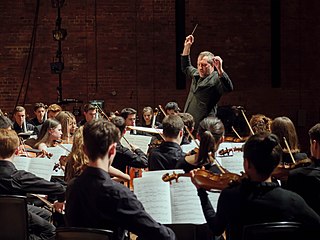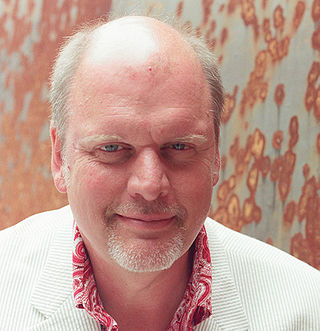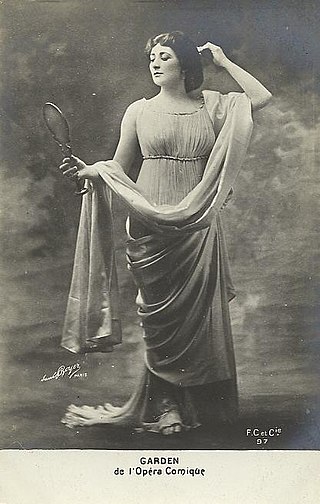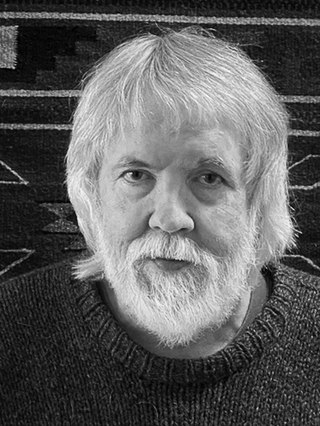Related Research Articles

An orchestra is a large instrumental ensemble typical of classical music, which combines instruments from different families. There are typically four main sections of instruments:

A symphony is an extended musical composition in Western classical music, most often for orchestra. Although the term has had many meanings from its origins in the ancient Greek era, by the late 18th century the word had taken on the meaning common today: a work usually consisting of multiple distinct sections or movements, often four, with the first movement in sonata form. Symphonies are almost always scored for an orchestra consisting of a string section, brass, woodwind, and percussion instruments which altogether number about 30 to 100 musicians. Symphonies are notated in a musical score, which contains all the instrument parts. Orchestral musicians play from parts which contain just the notated music for their own instrument. Some symphonies also contain vocal parts.
Shulamit Ran is an Israeli-American composer. She moved from Israel to New York City at 14, as a scholarship student at the Mannes College of Music. Her Symphony (1990) won her the Pulitzer Prize for Music. She was the second woman to win the Pulitzer Prize for Music, the first being Ellen Taaffe Zwilich in 1983. Ran was a professor of music composition at the University of Chicago from 1973 to 2015. She has performed as a pianist in Israel, Europe and the U.S., and her compositional works have been performed worldwide by a wide array of orchestras and chamber groups.

Claudio Abbado was an Italian conductor who was one of the leading conductors of his generation. He served as music director of the La Scala opera house in Milan, principal conductor of the Berlin Philharmonic, principal conductor of the London Symphony Orchestra, principal guest conductor of the Chicago Symphony Orchestra, music director of the Vienna State Opera, founder and director of the Lucerne Festival Orchestra, founder and director of the Mahler Chamber Orchestra, founding artistic director of the Orchestra Mozart and music director of the European Union Youth Orchestra.

Gunther Alexander Schuller was an American composer, conductor, horn player, author, historian, educator, publisher, and jazz musician.

Thomas Joseph Edmund Adès is a British composer, pianist and conductor. Five compositions by Adès received votes in the 2017 Classic Voice poll of the greatest works of art music since 2000: The Tempest (2004), Violin Concerto (2005), Tevot (2007), In Seven Days (2008), and Polaris (2010).

Michael Kevin Daugherty is a multiple Grammy Award-winning American composer, pianist, and teacher. He is influenced by popular culture, Romanticism, and Postmodernism. Daugherty's notable works include his Superman comic book-inspired Metropolis Symphony for Orchestra (1988–93), Dead Elvis for Solo Bassoon and Chamber Ensemble (1993), Jackie O (1997), Niagara Falls for Symphonic Band (1997), UFO for Solo Percussion and Orchestra (1999) and for Symphonic Band (2000), Bells for Stokowski from Philadelphia Stories for Orchestra (2001) and for Symphonic Band (2002), Fire and Blood for Solo Violin and Orchestra (2003) inspired by Diego Rivera and Frida Kahlo, Time Machine for Three Conductors and Orchestra (2003), Ghost Ranch for Orchestra (2005), Deus ex Machina for Piano and Orchestra (2007), Labyrinth of Love for Soprano and Chamber Winds (2012), American Gothic for Orchestra (2013), and Tales of Hemingway for Cello and Orchestra (2015). Daugherty has been described by The Times (London) as "a master icon maker" with a "maverick imagination, fearless structural sense and meticulous ear."
Bernard Rands is a British-American contemporary classical composer. He studied music and English literature at the University of Wales, Bangor, and composition with Pierre Boulez and Bruno Maderna in Darmstadt, Germany, and with Luigi Dallapiccola and Luciano Berio in Milan, Italy. He held residencies at Princeton University, the University of Illinois, and the University of York before emigrating to the United States in 1975; he became a U.S. citizen in 1983. In 1984, Rands's Canti del Sole, premiered by Paul Sperry, Zubin Mehta, and the New York Philharmonic, won the Pulitzer Prize for Music. He has since taught at the University of California, San Diego, the Juilliard School, Yale University, and Boston University. From 1988 to 2005 he taught at Harvard University, where he is Walter Bigelow Rosen Professor of Music Emeritus.
Andrew Paul MacDonald is a Canadian classical composer, guitarist, conductor, and music educator. His compositions have been performed in many countries and recorded by well-known musical ensembles.

The Portland Youth Philharmonic (PYP) is the oldest youth orchestra in the United States, established in 1924 as the Portland Junior Symphony (PJS). Now based in Portland, Oregon, the orchestra's origin dates back to 1910, when music teacher Mary V. Dodge began playing music for local children in Burns, Oregon. Dodge purchased instruments for the children and organized the orchestra, which would become known as the Sagebrush Symphony Orchestra. After touring the state, including a performance at the Oregon State Fair in Salem, the orchestra disbanded in 1918 when Dodge moved to Portland. There, Dodge opened a violin school and became music director of the Irvington School Orchestra.
Sigismund Vladislavovitch Zaremba was a Polish and Ukrainian composer, music director, violinist, born in a Polish family, son of Vladislav Ivanovitch Zaremba, also a composer. Studied at Antoni Kocipiński in Kamenec Podlolski.
Dan Coleman is a composer and music publisher.
Persimfans was a conductorless orchestra in Moscow in the Soviet Union that was founded by Lev Tseitlin and existed between 1922 and 1932. Its name is an abbreviation for Pervïy Simfonicheskiy Ansambl' bez Dirizhyora. Other orchestras were organized following its example, both in the USSR and abroad.

The Oxford University Jazz Orchestra (OUJO) is a jazz orchestra based in the University of Oxford, England. It was founded in 1991.
Neill Joseph Sanders was a British horn player, principal horn of the London Philharmonic Orchestra and the BBC Symphony Orchestra, and for 29 years a member of the Melos Ensemble. He was a professor at Western Michigan University in Kalamazoo, Michigan and founded the Fontana Ensemble and the Fontana Concert Society with its summer festival.

Oxford Harmonic Choir is a large, mixed-voice amateur choir based in Oxford, England. It is the second-oldest non-collegiate choir in Oxford, having been founded in 1921, and according to The New Grove Dictionary of Music and Musicians is one of the "institutions of lasting significance to Oxford's musical life that were established during this period". Currently the choir has around 150 singing members and usually performs three concerts annually in either the Sheldonian Theatre or Oxford Town Hall with the Orchestra of Stowe Opera.

{{subst:Proposed deletion|concern=Missing relevance and most of the references are either not existent or not working. Moreover, the functioning references and quotes do not seem neutral or reliable}}

Classical music in Scotland is all art music in the Western European classical tradition, between its introduction in the eighteenth century until the present day. The development of a distinct tradition of art music in Scotland was limited by the impact of the Scottish Reformation on ecclesiastical music from the sixteenth century. Concerts, largely composed of "Scottish airs", developed in the seventeenth century and classical instruments were introduced to the country. Music in Edinburgh prospered through the patronage of figures including Sir John Clerk of Penicuik. The Italian style of classical music was probably first brought to Scotland by the cellist and composer Lorenzo Bocchi, who travelled to Scotland in the 1720s. The Musical Society of Edinburgh was incorporated in 1728. Several Italian musicians were active in the capital in this period and there are several known Scottish composers in the classical style, including Thomas Erskine, 6th Earl of Kellie, the first Scot known to have produced a symphony.

Michael Matthews, born August 28, 1950, in Gander, Newfoundland, Canada, is a composer and photographer. Matthews completed a Ph.D. in composition at North Texas State University in 1985. Matthews is a Fellow of the Royal Society of Canada and works in Berlin.
James Lockyer (1883–1962) was a British violist. He was the former principal violist of the Queen's Hall Orchestra and the Beecham Orchestra. He also played with the London Symphony Orchestra and the British Chamber Music Players, and was the violist in many string quartets and ensembles in the first half of the twentieth century.
References
- 1 2 Head, Louise (2001). British and International Music Yearbook. Rhinegold Publishing. p. 238.
- ↑ Hibbert; Hibbert, eds. (1988). The Encyclopaedia of Oxford . p. 267.
{{cite encyclopedia}}: Missing or empty|title=(help) - ↑ Hibbert; Hibbert, eds. (1988). The Encyclopaedia of Oxford . p. 305.
{{cite encyclopedia}}: Missing or empty|title=(help) - ↑ Hibbert; Hibbert, eds. (1988). The Encyclopaedia of Oxford . p. 306.
{{cite encyclopedia}}: Missing or empty|title=(help) - ↑ "Alumni Association of American Rhodes Scholars". The American Oxonian. 45. Association of American Rhodes Scholars: 124. 1958.
- ↑ MacyLouise, Laura Williams, ed. (2008). "Wilson, Sir (James) Steuart". The Grove Book of Opera Singers. Oxford University Press. p. 527. ISBN 978-0195337655.
- ↑ "OUMS Website About Page".
- 1 2 "OUMS Website Ensembles Page".
- ↑ "Oxford University Music Faculty Website".